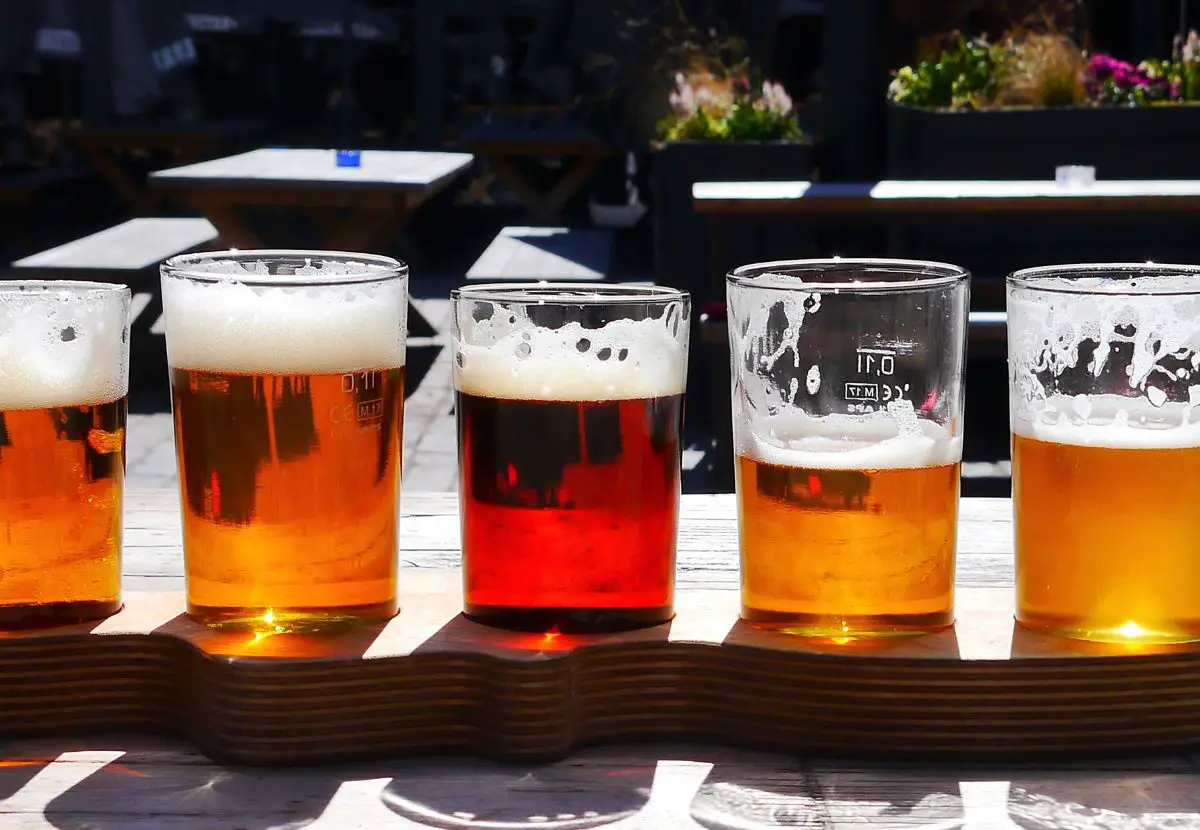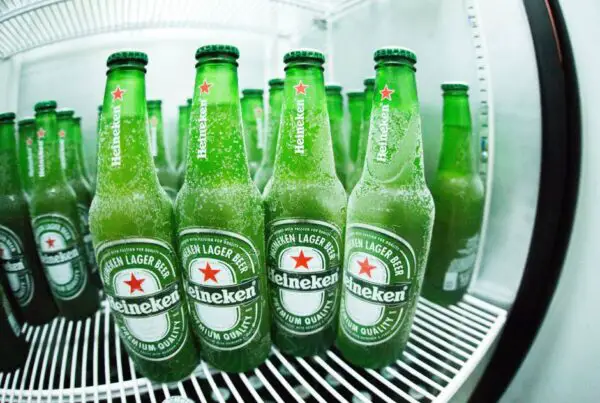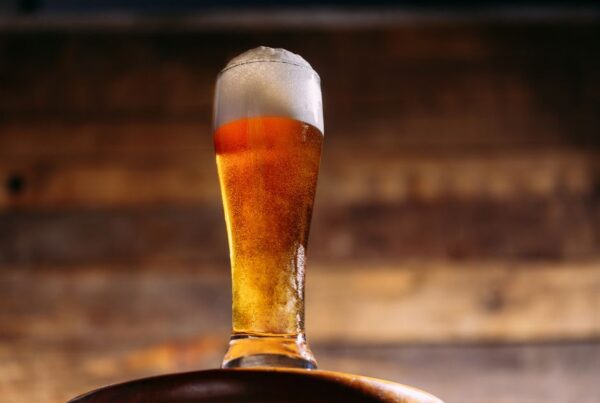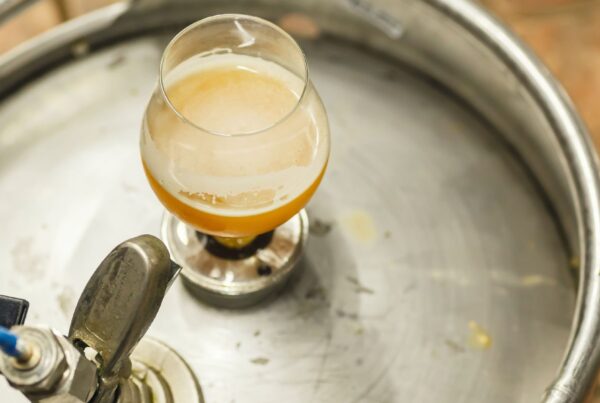How And Why Does Beer Become Skunky?
Beer has a problem with light. Especially the ultraviolet kind. It’s in beer’s nature to shun the sun.
That’s because when UV rays hit beer, they catalyze a reaction with the compounds in hops, creating a chemical very similar to the spray of a skunk.
Hence the terms, “skunky,” “skunked,” or “lightstruck” beer.
Various strategies like using brown, green, and clear beer bottles (more on that in a second) and aluminum cans are employed to deter the pernicious effects of light, preserving the beer’s intended flavor and aroma. What does pernicious mean? It’s just a fancy way of saying “having a harmful effect, especially in a gradual or subtle way.”
However, it’s not the visible light, but the stealth attacks of UV rays that are the real pernicious buzzkills here.
Glass Warfare
The color of the glass housing your beer can make a difference, although modern practices have blurred the lines a bit. Nowadays, many beer bottles, regardless of the glass’ coloring, are sprayed with a UV protective coating to block UV light. It’s like putting a pair of sunglasses on your beer, only more effective and less of a cry for help.
Of course, cans and kegs are naturally much more effective at preventing beer from going skunky since they’re opaque. This keeps your beer safe from the skunk-inducing effects of UV light, making cans and kegs a more reliable choice for maintaining beer’s intended flavor and aroma over time.
That’s right—the next time you hear a beer snob mock go on a tirade about the superiority of glass-bottled beer, feel free to enlighten them about the UV-blocking prowess of cans.
Temperature Tantrums
Storage temperature is a key factor in maintaining your beer’s quality. Fluctuations between hot and cold can cause your beer to lose its intended flavors and pick up unwanted flavors.
Maintaining a constant, cool storage temperature for beer is essential. It provides a stable environment for your beer, preserving its flavors. So store your beer in a cool, dark place to avoid it turning into a skunky disappointment.
Oxygen: Beer’s Flavor Foe
Once beer interacts with oxygen, the quality quickly deteriorates. Oxygen exposure leads to staleness and off-flavors, making the beer less enjoyable over time.
A good seal is crucial to prevent oxygen exposure. It ensures the freshness and flavor of the beer are maintained. Always check the seal before purchasing or storing your beer to avoid a less than satisfying experience.
Time: The Unforgiving Arbiter of Skunk
Beer isn’t wine. It doesn’t age gracefully. Just like Uncle Jimmy, it just gets old, bitter, and, yes, skunky.
The longer beer sits, especially in less than ideal conditions, the more its flavor profile can develop sour or funky notes that were not intended by the brewery. So check the beer’s born on date, and drink it before it decides to go rogue.
Bottom Line
It’s no joke—keeping beer from turning skunky is a literal battle against the elements. Between UV rays gunning for its flavor, temperature swings testing its stability, oxygen trying to spoil it, and time being a relentless foe… beer faces quite the gauntlet.
Consider this your field guide in the never-ending battle against skunky beers. Take these tips to heart to ensure your beer stays fresh, flavorful, and far from the dreaded “skunk zone.”






